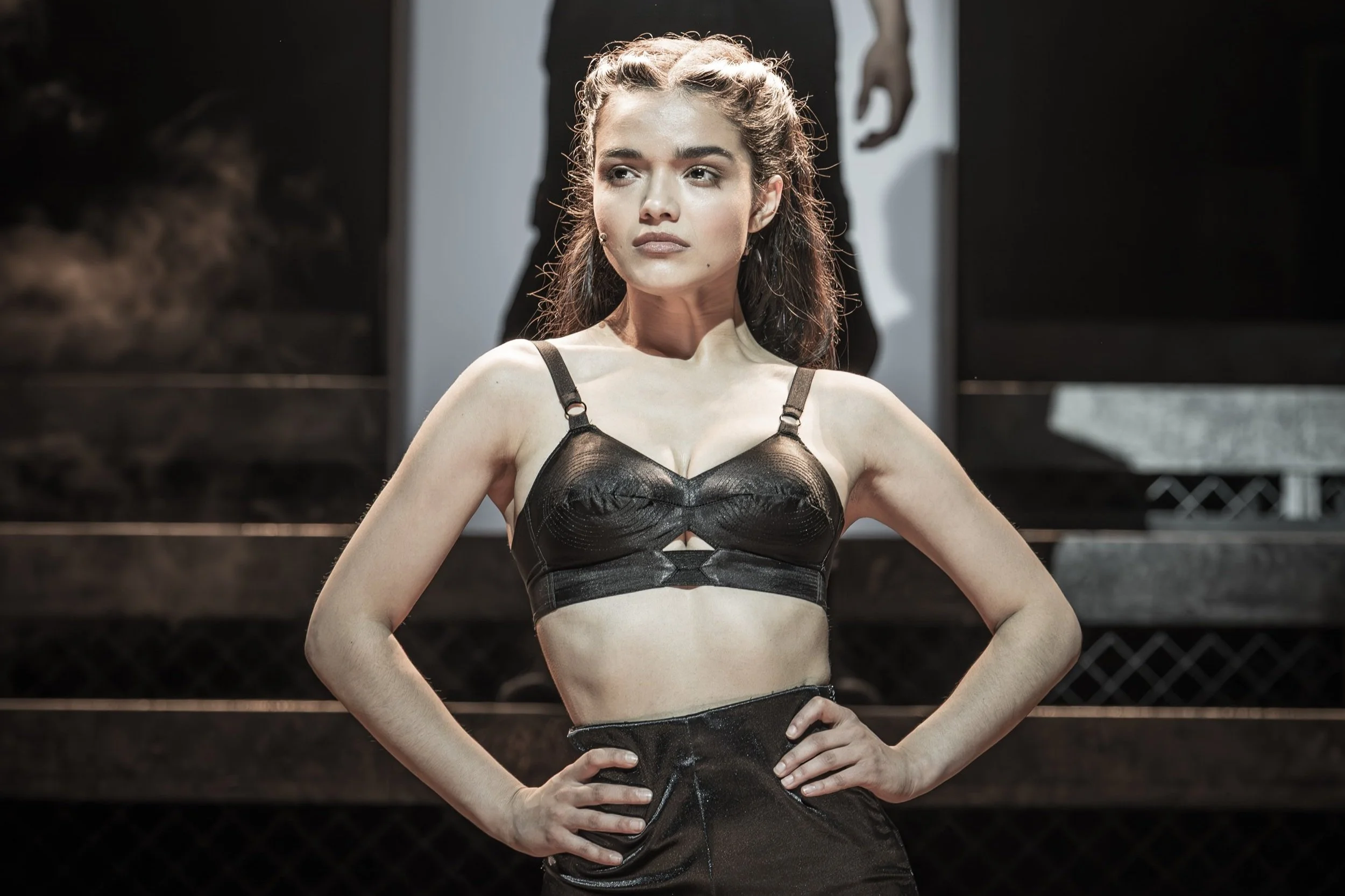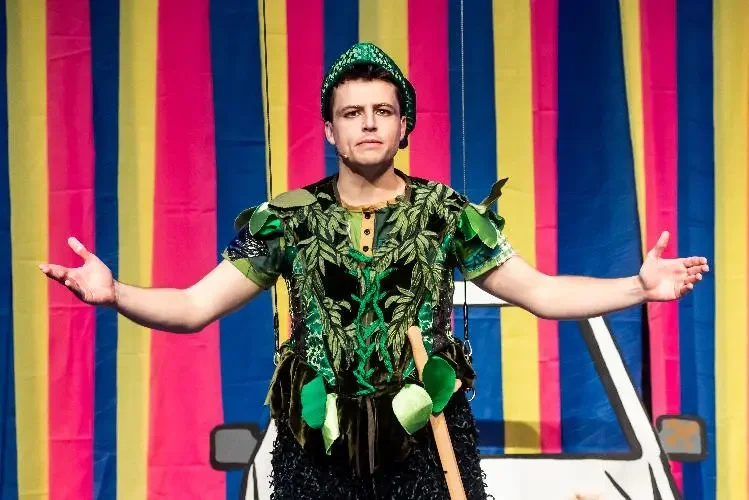Evita at London Palladium Review
Rachel Zegler (Eva Perón) in Evita. Photo by Marc Brenner
Written by Greta for Theatre & Tonic
Disclaimer: Gifted tickets in exchange for an honest review
Long before the curtain rose on this new revival of Evita, London was already abuzz. Word of the daring balcony moment where Rachel Zegler, as Eva Perón, would emerge each night to deliver “Don’t Cry for Me, Argentina” to the crowds outside the London Palladium spread like wildfire. (you can watch it via Steve Carter on Instagram) From there, the anticipation only escalated, and after press night, it’s clear that this much-anticipated production is going to live up to the hype.
Evita returns to the West End as a veritable spectacle, with a production that fully embraces the theatricality of Eva Perón’s carefully manufactured rise to power. Led by the magnetic Rachel Zegler, this musical’s boldness is exactly what makes it exhilarating: an unapologetically big, loud, and brazen production that mirrors its protagonist’s boundless audacity.
The story begins in 1934, when Eva Duarte – only fifteen – starts out her journey to become an actress in Buenos Aires. With only her ice-cold ambition as an ally, Eva has nerves of steel and a thirst for fame. Charming as she is calculating, she knows who she is and what she wants, and has no qualms about twisting people around her finger. While the relentless focus on Eva’s unstoppable desire for power occasionally flattens the rest of her personality, it is never dull: the production drives forward with an electrifying pace that keeps the audience on the edge of their seats.
Zegler herself is nothing short of a triumph. An astonishing vocal powerhouse, she moves through Evita’s eclectic musical variety with a precision and emotional power that commands admiration. She shimmers with confidence and vocal agility in “Rainbow High”, a glorious personal highlight, while “You Must Love Me” achieves, under her magic touch, a moving tenderness that speaks of an unexpected vulnerability in Eva’s otherwise impervious personality. The much talked about “Don’t Cry for Me Argentina”, which we watch from inside as a live video feed, comes with cheeky flourishes in montage that almost distract from its own inventiveness. It is a moment of undeniable impact, though, blurring performance and reality while showcasing impressive technical expertise.
The show’s modern, stylised visual language veers somewhere between Burlesque and Jesus Christ Superstar, making no attempt to find roots in period authenticity. This choice, though dramatic and striking, may be one of the contributing factors of this Evita’s major fault, namely the dilution of its political context. Regrettably, the historical backdrop gets lost in the glamour and clamour, and while we get glimpses of the more troubling realities of Peronism – its use of violence and corruption, the convenient disappearance of political opponents, and Eva’s own complicity – they are often underexplored. The character of Che (a memorable West End debut for Diego Andres Rodriguez), functioning as a moral compass and voice of the people, highlights these contradictions, but receives little support from the language of the production itself. A clearer analysis of the context would have provided much needed depth, especially since the composer, lyricist and director don’t seem to have any meaningful ties with the country, heritage, and history of Argentina.
Additionally, the impressively lively tempo of the show, mentioned before, fails to make us dwell on things we should be paying attention to; it is deeply unsettling to see a teenage Eva depicted so firmly as a jezebel and manipulator extraordinaire. A revival dated 2025 should follow the cultural and social shifts that now allow us to identify predatory behaviour and to place the power and the blame firmly with the older perpetrators, who are the actual exploiters. Evita ignoring paedophilia in its plot, not complicating it, nor even naming it for what it is, disappoints.
What it lacks in subtlety and thoughtfulness, Evita makes up for in thrill. The ensemble is smooth, powerful, and dynamic, driving home impressive and vibrant choreographies with unfailing smoothness. “A New Argentina” is as infectious as it is emboldening, a rallying cry in dance form, while “I’d Be Surprisingly Good for You” fuses slick staging with a beguiling intimacy. Energy and impact are carried throughout, with the second act’s projections elevating Eva’s act to a proper spectacle. The cult of her own personality, spreading far and wide throughout Argentina and beyond, is a performance learned, perfected and then mastered.
Yes, Evita leaves gaps about the woman behind the ambition, the country behind the woman, and the shifting politics she manipulates; but its pace, grandiose scale, and career-defining central performance by Zegler mean you hardly have time to mind – at least until the curtains close.
Evita plays at London Palladium until 6 September
★★★★



















